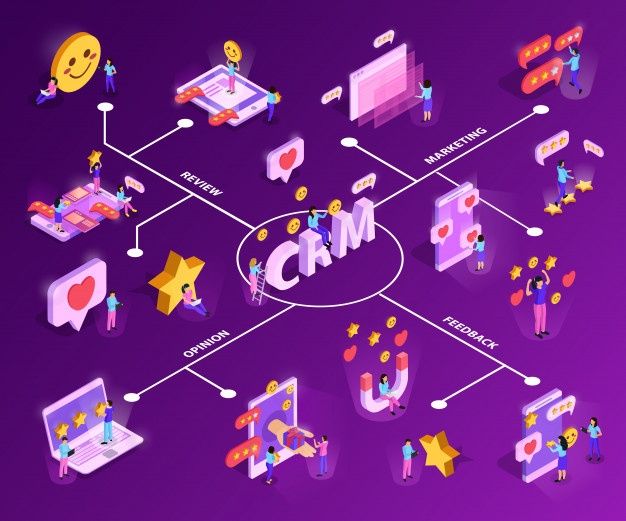
The Future of CRM: Trends and Innovations to Watch
Customer Relationship Management (CRM) systems have evolved significantly over the years, becoming indispensable tools for businesses looking to manage and optimize their interactions with customers. As technology continues to advance and consumer expectations evolve, the future of CRM is poised for further transformation. In this article, we’ll explore some of the key trends and innovations shaping the future of CRM.
1. Artificial Intelligence (AI) and Machine Learning
AI and machine learning technologies are revolutionizing CRM by enabling businesses to analyze vast amounts of customer data and extract valuable insights. AI-powered CRM systems can automate tasks, personalize customer interactions, predict customer behavior, and even identify trends and patterns that humans might overlook. As AI continues to mature, we can expect to see more advanced AI-driven features and capabilities integrated into CRM systems, further enhancing their effectiveness and efficiency.
2. Predictive Analytics
Predictive analytics is another emerging trend in CRM that leverages data science and statistical algorithms to forecast future outcomes and trends based on historical data. By analyzing customer behavior, preferences, and interactions, predictive analytics can help businesses anticipate customer needs, identify potential opportunities, and mitigate risks. As predictive analytics capabilities become more sophisticated, CRM systems will be able to provide even more accurate and actionable insights to drive decision-making and strategy.
3. Omnichannel Customer Engagement
Today’s consumers expect seamless and consistent experiences across multiple channels and touchpoints, including websites, mobile apps, social media, email, and more. Omnichannel CRM solutions enable businesses to unify customer interactions across channels, providing a cohesive and personalized experience throughout the customer journey. The future of CRM will see further integration of omnichannel capabilities, allowing businesses to deliver truly seamless and personalized experiences that meet the evolving expectations of customers.
4. Customer Data Platforms (CDPs)
Customer Data Platforms (CDPs) are emerging as a powerful tool for centralizing and unifying customer data from various sources, including CRM systems, marketing automation platforms, and e-commerce systems. CDPs enable businesses to create a single, comprehensive view of each customer, facilitating better understanding, segmentation, and targeting. In the future, CRM systems will likely integrate more closely with CDPs to leverage their rich customer data for more personalized and effective engagement strategies.
5. Conversational AI and Chatbots
Conversational AI and chatbots are increasingly being integrated into CRM systems to enhance customer service and support capabilities. Chatbots powered by natural language processing (NLP) can interact with customers in real-time, answering questions, providing assistance, and even completing transactions. As conversational AI technologies continue to improve, we can expect to see more sophisticated and context-aware chatbots integrated into CRM systems, enabling businesses to deliver faster, more personalized, and more efficient customer support.
6. Blockchain for Data Security and Transparency
Blockchain technology holds promise for improving data security, transparency, and trust in CRM systems. By storing customer data in a decentralized and tamper-proof ledger, blockchain can enhance data integrity and protect against unauthorized access or manipulation. Additionally, blockchain-based smart contracts can automate and enforce agreements between businesses and customers, ensuring transparency and accountability. As concerns about data privacy and security continue to grow, we may see increased adoption of blockchain technology in CRM systems to address these challenges.
7. Augmented Reality (AR) for Enhanced Customer Experiences
Augmented Reality (AR) is poised to revolutionize customer experiences by enabling businesses to provide immersive and interactive experiences to their customers. In the context of CRM, AR can be used to showcase products and services, offer virtual tours or demonstrations, and even provide personalized recommendations based on customer preferences and behavior. As AR technology becomes more accessible and affordable, we can expect to see businesses leveraging AR to create unique and engaging experiences that drive customer engagement and satisfaction.
Conclusion
The future of CRM is filled with exciting possibilities, driven by advancements in technology, changing consumer expectations, and evolving business needs. From AI and predictive analytics to omnichannel engagement and blockchain, the CRM landscape is undergoing a profound transformation. Businesses that embrace these trends and innovations will be well-positioned to deliver exceptional customer experiences, drive growth, and stay ahead of the competition in the increasingly digital and customer-centric marketplace of the future.